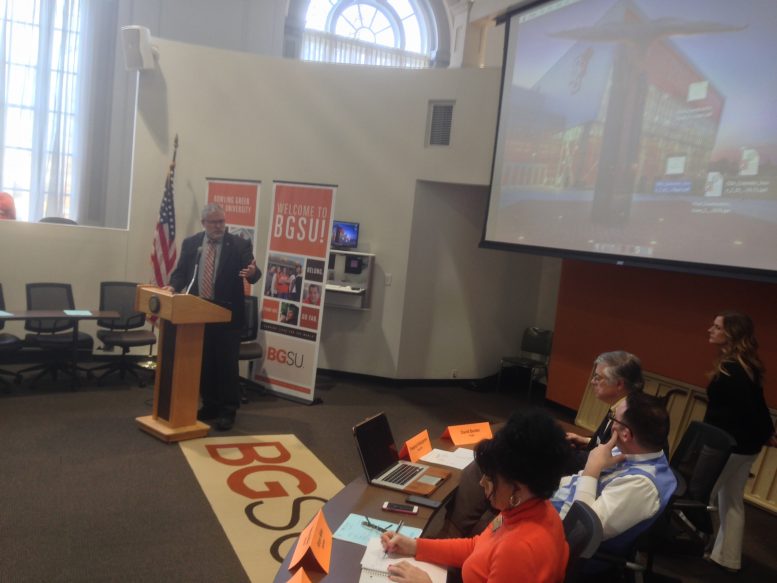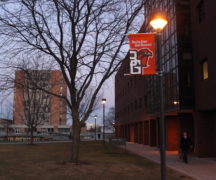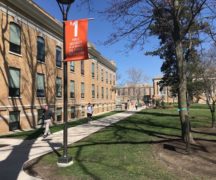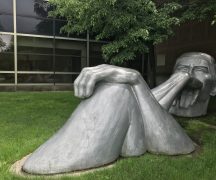By DAVID DUPONT
BG Independent News
Bowling Green State University’s new 15-week semester hit a snag six months before it is scheduled to start when a discussion during a meeting of administrators led to a misunderstanding about how exam week would be handled.
Faculty later were shocked when they found a fall calendar on the registrar’s page stating the last day of classes for the fall semester would be Dec. 14 with the first commencement ceremony scheduled for that night.
The senate was meeting the second time this month Tuesday during an on-call session. Senate Chair David Border called the session after all “the noise” generated by the confusion.
Acting Provost John Fischer told Faculty Senate he took full responsibility for the confusion. What were intended to be complex, “nuanced” discussions about how to approach finals week turned “funky,” and within an hour of the meeting he was getting calls.
The first discussion among department chairs and school directors was about how to make sure finals week was being used for exams, final projects or other educationally significant work. That week has become even more important, he said, because of the need to meet the number of contact hours – the time faculty are with students in the classroom – required by the state.
With a 16-week semester, BGSU had already recorded the required number of hours before finals week.
When Interim President Rodney Rogers was provost, he would, at the end of the semester, informally poll students waiting in line at Starbucks in the student union and ask them if they had an exam or other class meeting in all their courses during finals week.
He found, Fisher said, that just about all said at least one course was not meeting.
That cannot happen in a 15-week semester. So the chairs and directors discussed to stop calling the last week of the semester finals week. That was the first problem.
The second more nagging issue is how to shoehorn exams into a final week of the semester.
Three-credit hour courses would work fine using a typical exam week schedule, Fischer said. But four and five credit hour courses are problematic. Should they meet on one marathon session or meet twice. One session could be for review, and the other for the exam. Or an exam, and then a final more “reflective” session, he said.
No decision on that has been made, and Sheila Roberts, acting vice provost for academic affairs, will convene an ad hoc committee to determine the best approach.
The Senate voted to request that the committee include faculty who teach four and five credit courses. Roberts said it should not only include those faculty. The Senate also voted to study figures presented by Alyson Wilson, from Firelands, questioning if there were enough contact hours.
Fischer said that when the 15-week semester was being studied last year, the committee asked the state if it met that requirement, and was told it did.
Senator Jim Evans, of geology, said he didn’t want the faculty to lose sight of the impact on students, who may now face a cluster of exams at the end of the last week of the semester.
Valeria Grinberg Pla, who teaches Latin American Cultural Studies, said that having multiple sections for exams for the four and five credit hour courses would put a burden on the graduate assistants, who will have to create multiple exams. Maintaining one exam period per course is important, she said.
Fischer said the change to the 15-week semester will also have other ramifications. Because students will arrive later in August, Labor Day comes earlier in the semester.
It’s important for faculty to engage students in their course work early on. Those students who log into Canvas, the university course management system, within the first couple week tend to be more committed and more likely to stay.
Also, the administration using data from dorms can see who stays on campus over Labor Day. If a student is not on campus, that can be a sign they are in danger of dropping out. The university is also providing funding to student groups for them to host activities on campus over the long weekend.





